#viennale 2019
Photo

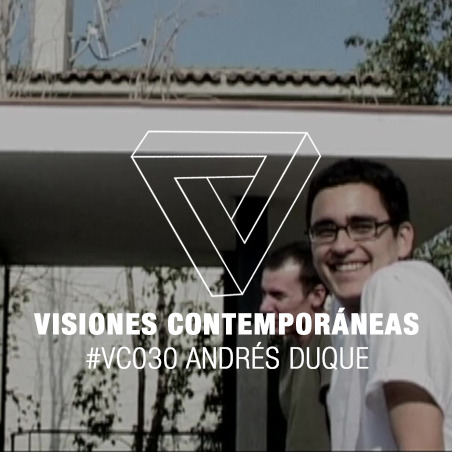
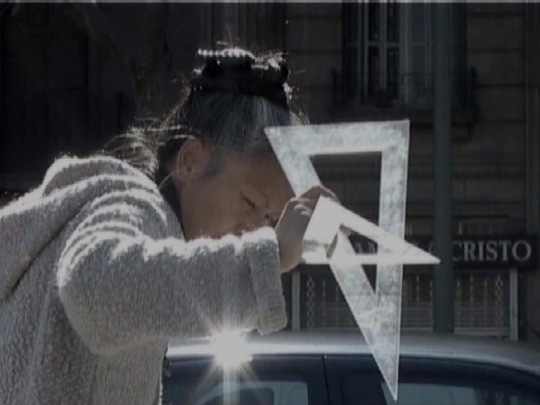
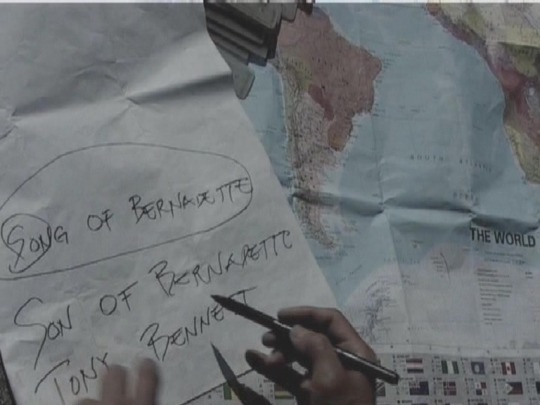
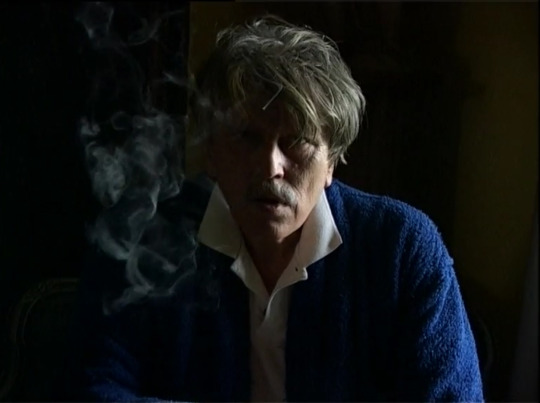
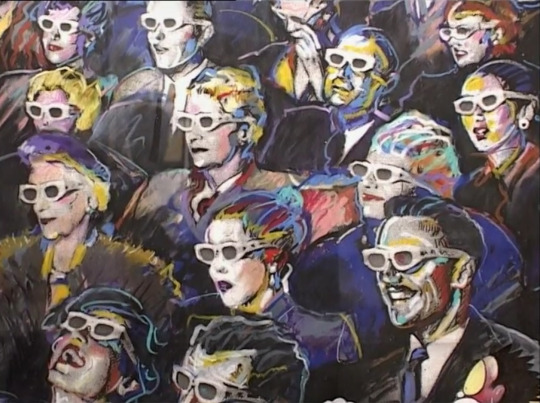
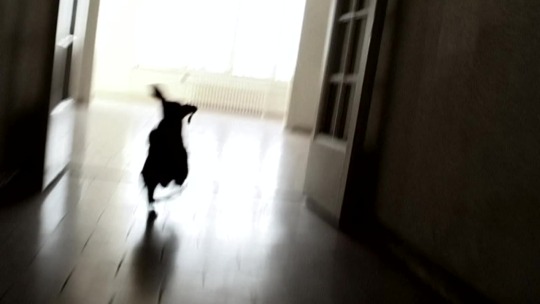
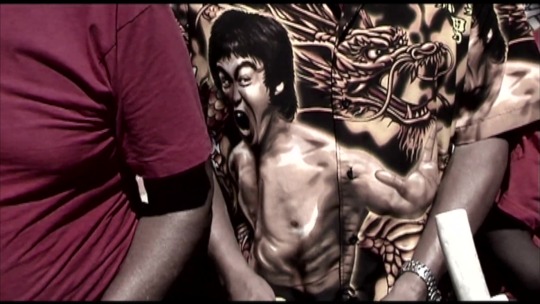

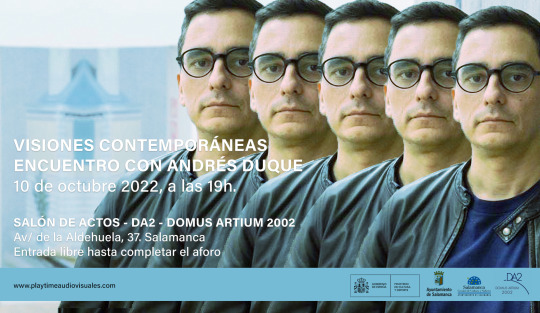
Del 30 de octubre al 12 de febrero del 2023
VC#030 ANDRÉS DUQUE [web de la artista]
Cineasta español nacido en Caracas (Venezuela). Su obra transita por las fronteras de la no-ficción, con un fuerte carácter ensayístico y documental. Más que planificar de antemano, encuentra sus películas, las cuales surgen de experiencias personales que le acaban embarcando en viajes obsesivos o de personajes con los que conecta de manera especial y que tienen una historia que pide ser contada; trabajando en su cine, fundamentalmente, en torno al retrato y el autorretrato.
Las obras presentadas en este Ciclo responden a su trabajo e investigación en la periferia de la no-ficción y los márgenes del ensayo audiovisual en torno al retrato y los personajes extremos, pero también haciendo referencia a la identidad de director migrante en territorio español. Andrés Duque se posiciona y sitúa en un lugar incómodo, eligiendo formalmente una estética no sólo inmigrante si no directamente nómada. Duque maneja sensibilidades que no se sostienen por sus raíces culturales, sino por unos deseos que permiten cruces identitarios y artísticos. Repensar el denominado transnacionalismo, no desde una lógica capitalista sino desde una concepción personal pluridentitaria, que permite desdibujar las fronteras, siendo por lo tanto liberadora para el propio artista.
Con cinco largometrajes dirigidos hasta la fecha: Color perro que huye (2011), Ensayo final para Utopía (2012), Oleg y las raras artes (2016), Carellia Internacional con movimiento (2019) y Monte Tropic: una historia del confinamiento (2022) y numerosas obras de corta duración, ha exhibido en centros de arte nacionales como MNCA Reina Sofía, CA2M y La Casa Encendida de Madrid, MACBA de Barcelona, MUSAC de León o Artium de Vitoria e internacionales como MUMOK - Museo de Arte Moderno de Viena, GARAGE - Museo de Arte Contemporáneo de Moscú o el Museo del Hermitage en San Petersburgo y ha sido seleccionado y premiado en algunos de los festivales internacionales de cine más prestigiosos: Festival de Róterdam (Paisaes Bajos); Viennale (Austria); FidMarseille y Cinema du Reel (Francia); BAFICI (Argentina); FICUNAM (México); Jihlava (República Checa) o Festival Punto de Vista (España) por citar unos pocos. En el año 2013 recibió el premio ciudad de Barcelona y en 2017 la beca Multiverso de Videoarte de la Fundación BBVA. Esta será la primera vez que su obra se expone en Salamanca.
OBRAS
Iván Z. Sonido. Color. Digital. 2004. 53'
Paralelo 10. Sonido. Color. Digital. 2005. 26’
Color Perro que Huye. Sonido. Color. Digital. 2011.70’
Monte Tropic (Una historia del confinamiento) Sonido. Color. Digital. 2022. 73’
Este Visiones Contemporáneas dedicado a Andrés Duque se completará con una master class, que el cineasta impartirá el día de la inauguración de su exposición, 10 de noviembre, a las 19h. en el DA2, con entrada gratuita.
Esta exposición ha contado con las ayudas para la promoción del arte contemporáneo español dependientes del Ministerio de Cultura y Deporte del Gobierno de España.
0 notes
Video
The one where Adele just casually ends her speech in German.
Source (starts around 5:06)
#adele haenel#viennale 2019#my multilingual queen#i read somewhere that she also speaks a bit of Norwegian#and learned Bosnian for her upcoming movie heroes don't die
101 notes
·
View notes
Video
youtube
viennale 2019 #4: “hail satan?” by penny lane. documentary about the satanic temple and the theocratic tendencies in the U.S.A. definitely worth watching!
btw, those are the seven tenets of the satanic temple:
One should strive to act with compassion and empathy toward all creatures in accordance with reason.
The struggle for justice is an ongoing and necessary pursuit that should prevail over laws and institutions.
One’s body is inviolable, subject to one’s own will alone.
The freedoms of others should be respected, including the freedom to offend. To willfully and unjustly encroach upon the freedoms of another is to forgo one's own.
Beliefs should conform to one's best scientific understanding of the world. One should take care never to distort scientific facts to fit one's beliefs.
People are fallible. If one makes a mistake, one should do one's best to rectify it and resolve any harm that might have been caused.
Every tenet is a guiding principle designed to inspire nobility in action and thought. The spirit of compassion, wisdom, and justice should always prevail over the written or spoken word.
2 notes
·
View notes
Link
Translated interview
Viennale Star Adèle Haenel: ‘Equality is sexy’
Wolfgang Huber-Lang/APA, in: Salzburger Nachrichten, 25th of October 2019
Adèle Haenel (30, Paris), who is a protagonist in the opening film ‘Portrait of a Lady on Fire’, was the star guest at yesterday’s Viennale. She is also starring in Pierre Salvadori’s comedy ‘The Trouble with You’, which will be released in cinemas [T: across Austria] from the 8th of November. The talk about film, theatre, lies and clichés alternates between German, English and French.
Additions or clarifications for translating purposes are denoted as [T: …].
Interviewer: Ms Haenel, the opening of the Viennale, which was dominated by women, seems to have been the perfect environment for your film?
Adèle Haenel: Indeed, I actually hadn’t noticed: There were really just women, who held speeches. That’s not often the case. Super! It was a really lovely atmosphere. The audience apparently liked the film [T: … they didn’t like it, they loved it 😜]. I don’t like red carpet events too much, but it was quite charming here, it is a festival for the public and people even dress up for this evening.
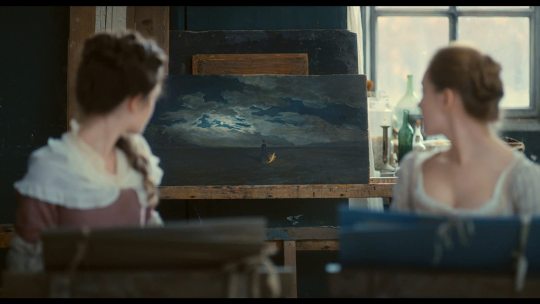
I: In ‘Portrait’, men only play tiny secondary roles. Is the film also making a political statement? There is also a heated debate about gender equality in the film business.
AH: It is a good experience that men are not centre stage for once. The film centres around lesbian lovers and is not making a political statement at first glance. But there is the opportunity to show something that may have been neglected so far. Why was something like this not told before? After all, it is about half of the population. Equality is sexy, consent is sexy. What can we do with this? The political is derived from cinematic questions. But essentially, it is about emotions that are slowly developing. The film builds the love story on different levels: Desire, intellectual exchange, friendship. These give rise to what we call love. That is the heart of the film.
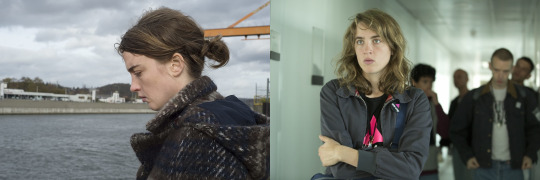
I: [T: In Austria,] you are known for films like ‘The Unknown Girl’ from the Dardenne Brothers or the Anti-AIDS-drama ‘120 BPM’ from Robin Campillo. But ‘Portrait’ takes place around 1770. Is a period film another challenge?
AH: I have already made three films that took place in the 18th century. It doesn’t really make a difference for me. I think that ‘Portrait’ is closer to ‘Water Lilies’ (Céline Sciamma’s film, which was Haenel’s breakthrough in 2007) than to other period films. But I like costumes, because they make it necessary to reinvent yourself. They not only change the way you move, but also how you speak.
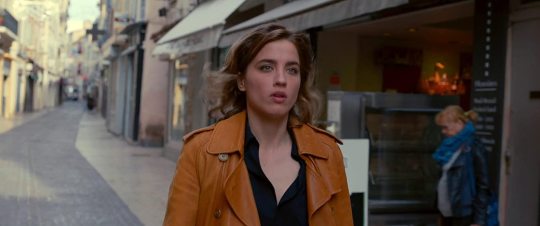
I: ‘En Liberté!’ will shortly be released here with the weird [T: German] title ‘Lieber Antoine als gar keinen Ärger’ [T: literally – Better to have Antoine than no trouble]. This film seems to be completely different from ‘Portrait’.
AH: That’s true, but it was also a remarkable experience. I learned a lot while shooting ‘En Liberté!’ – for example, how to bust clichés. When you’re doing a comedy, you really have to pay attention to the rhythm, and what is underneath. I believe, being aware about the conflict between what you say and what you mean has helped me perform the subtext in ‘Portrait’ later on. Although [T: these films] are quite different, there is a continuity for me. I love this film.
I: You play a [T: lieutenant]?
AH: It is about lies and people who try to survive their own lies. It is about a mafia-like structure and about guilt. The film is very funny – and very successful in France.
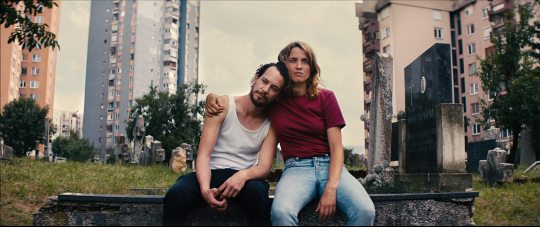
I: In Cannes, you were not only featured with ‘Portrait’, but also with ‘Les héros ne meurent jamais’ [T: Heroes don’t die], a combination of fiction and documentary about the war in Bosnia. Your range is broad. What is the kind of screenplay that sparks your interest?
AH: With ‘En Liberté!’, I knew intuitively that I wanted to do the film, even before I read the script. But I often try to figure out if there’s something behind the story that is left unsaid. In ‘Les héros ne meurent jamais’, there was also a connection between reality and fiction, a need to invent something and to tell stories that particularly interested me. This is something I truly love.
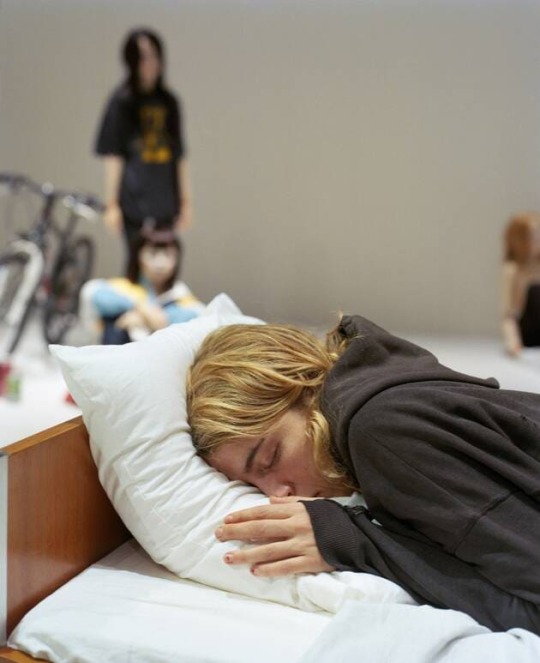
I: You also play theatre. But your current project with Gisèle Vienne on Robert Walser was postponed.
AH: Yes, until next year. Maybe it will also come to Austria. I love to act, but not the stuff around it. For me, it is about exploration, that is even more prominent in theatre than in film. I did a lot of theatre when I was a child. Then I stopped and started again in 2012 with ‘The Seagull’. Since then, I did more theatre. I love it. I think, Céline (Sciamma) is one of the most important contemporary female directors, and Gisèle is the same for theatre. I believe what we do with her is exploring movement, emotions and time. But for that you also need time – and I take it.

I: Finally, about your Austrian roots: Your father is from Graz?
AH: Yes, but he left when he was young. He has lived in France since 1968, I believe, and he doesn’t have the Austrian citizenship anymore, as you cannot have both. I sometimes went on vacation in Styria when I was a child. We primarily spoke French during my childhood. When we were young, he still spoke German with us, but we stopped pretty quickly. I only started [T: to speak German] again when I did the film ‘The Bloom of Yesterday’ with Chris Kraus. It was quite exhausting, but also funny how quickly my German came back.
I: You also received the ‘Prix Romy Schneider’.
AH: Indeed, but I didn’t really grow up with her films. I watched anime or films with [T: Jean-Paul] Belmondo as a child. I wasn’t a cinephile. That is why I didn’t think of Romy Schneider, when I started to act. I really didn’t have any actors/actresses as role model. I wanted to act not become a film star.
I: The new [T: controversial] Nobel laureate in literature, Peter Handke, has lived in Paris for a long time. Have you read anything by him?
AH: I remember for example a passage from ‘Über die Dörfer’ [T: literally – ‘About the villages’], where it says: Forget about your family and learn to love what is foreign… [T: das Fremde is difficult to translate, it’s the opposite of home] But I don’t have a strong connection with his works. I feel more connected with Elfriede Jelinek or Thomas Bernhard.
[T: Omitted short bio]
Picture sources: [1], [2-3], [4], [5], [6], [7]
@empressofkalumina uploaded a video of Adèle’s opening speech here, and has you covered with more pictures here.
#Salzburger Nachrichten#APA#Viennale#2019#Adèle Haenel#Austrian interview#Portrait of a Lady on Fire#PoaLoF#Céline Sciamma#The Unknown Girl#120 BPM#The Trouble with you#Heroes don't die#The Pond#The Bloom of Yesterday#Film#Theatre#Is she an Adèle of all trades#Yep#My translation#long post
88 notes
·
View notes
Photo
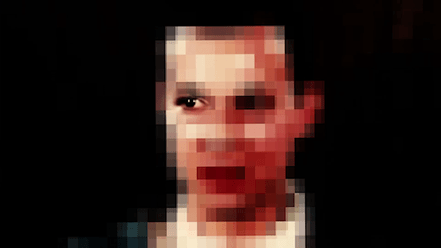
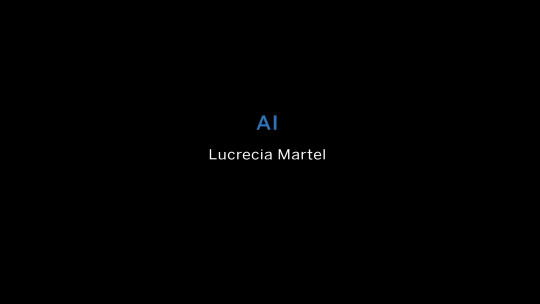
Lucrecia Martel, {2019} AI
#film#gif#lucrecia martel#ai#2019#female filmmakers#found footage#short film#pixilated#faces#obscured faces#people#eyes#argentina#austria#viennale trailer#2010s#colour
9 notes
·
View notes
Text
Films Watched in June 2020
Mutter Küsters' Fahrt zum Himmel (Mother Küsters Goes to Heaven) | Rainer Werner Fassbinder | 1975
Les glaneurs et la glaneuse (AKA The Gleaners & I) | Agnès Varda | 2000
Angst vor der Angst (Fear of Fear) | Rainer Werner Fassbinder | 1975
Les glaneurs et la glaneuse... deux ans après (AKA The Gleaners and I: Two Years Later) | Agnès Varda | 2002
Ich will doch nur, daß ihr mich liebt (I Only Want You to Love Me) | Rainer Werner Fassbinder | 1976
Satansbraten (Satan's Brew) | Rainer Werner Fassbinder | 1976
The Anderson Tapes | Sidney Lumet | 1971
Chinesisches Roulette (Chinese Roulette) | Rainer Werner Fassbinder | 1976
Hommage à Zgougou (Short) | Agnès Varda | 2002
Le lion volatil (Short) | Agnès Varda | 2003
The Berlin Bride | Michael Bartlett | 2020
Ydessa, the Bears and etc. (Short) | Agnès Varda | 2004
Viennale Walzer (Short) | Agnès Varda | 2004
Frauen in New York (Women in New York) | Rainer Werner Fassbinder | 1977
Bolwieser (AKA The Stationmaster's Wife) | Rainer Werner Fassbinder | 1977
Deutschland im Herbst (Germany in Autumn) | Various | 1978
Despair | Rainer Werner Fassbinder | 1978
In einem Jahr mit 13 Monden (In a Year with 13 Moons) | Rainer Werner Fassbinder | 1978
Die Ehe der Maria Braun (The Marriage of Maria Braun) | Rainer Werner Fassbinder | 1979
Die dritte Generation (The Third Generation) | Rainer Werner Fassbinder | 1979
Lili Marleen | Rainer Werner Fassbinder | 1981
Theater in Trance | Rainer Werner Fassbinder | 1981
Lola | Rainer Werner Fassbinder | 1981
Kamikaze 89 | Wolf Gremm | 1982
Die Sehnsucht der Veronika Voss (AKA Veronika Voss) | Rainer Werner Fassbinder | 1982
Querelle | Rainer Werner Fassbinder | 1982
The Navigator | Donald Crisp / Buster Keaton | 1924
See You Tomorrow, Everyone | Yoshihiro Nakamura | 2013
The Decameron | Pier Paolo Pasolini | 1971
Jeannette, l'enfance de Jeanne d'Arc | Bruno Dumont | 2017
The Canterbury Tales | Pier Paolo Pasolini | 1972
Jeanne (AKA Joan of Arc) | Bruno Dumont | 2019
Il fiore delle mille e una notte (AKA Arabian Nights) | Pier Paolo Pasolini | 1974
Be My Baby (AKA The Vortex of Love) | Hitoshi Ône | 2013
Salò, or the 120 Days of Sodom | Pier Paolo Pasolini | 1975
Bold = Top Ten
Some notes: Welp I decided I wanted to finish watching all the Fassbinders this month what with the end of my “shielding” and a return to work looming, which meant just under a fortnight of all-RWF viewing to get it done comfortably! Now that I’m back at work I’ll be watching less films (less time/too tired) but that may be a good thing in terms of blogging the stuff I’ve seen! I have a couple of other directors lined up to do retrospectives on at some point - but not just yet. I’m looking forward to a period of free-range watching, catching up with some films I’ve been holding back on plus a few recent disc purchases.
32 notes
·
View notes
Video
57th Viennale | Opening Speech 25 October 2019
#hahahahaha papa haenel is austrian#adèle haenel#portrait de la jeune fille en feu#portrait of a lady on fire#post record
305 notes
·
View notes
Photo
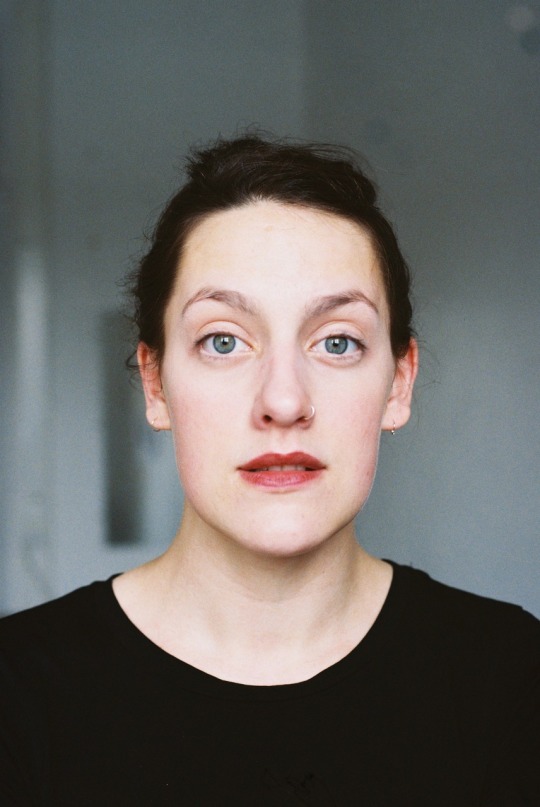
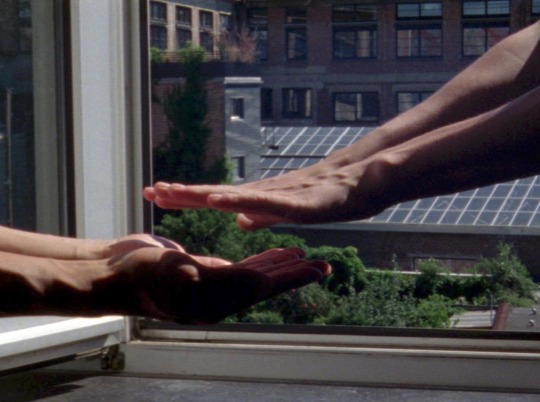
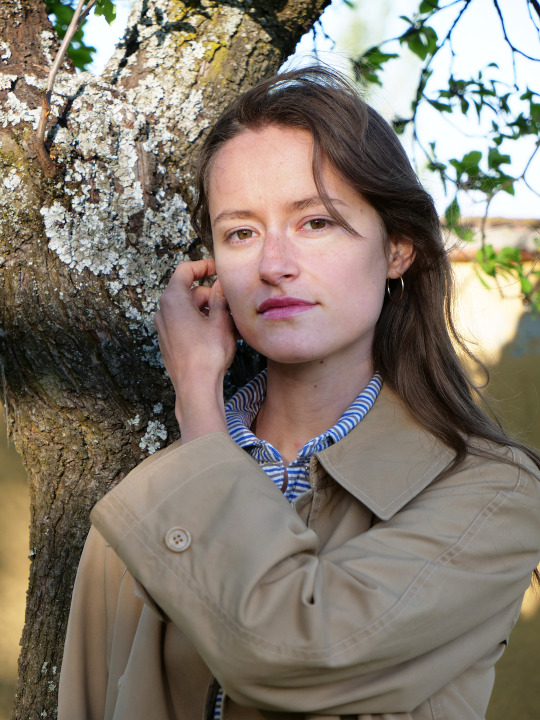
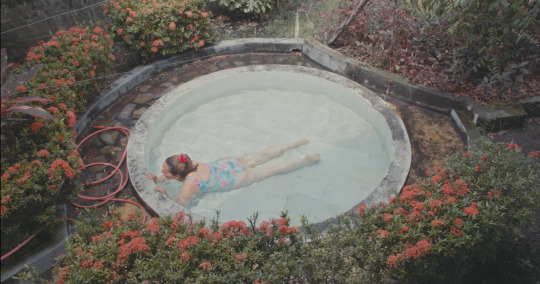
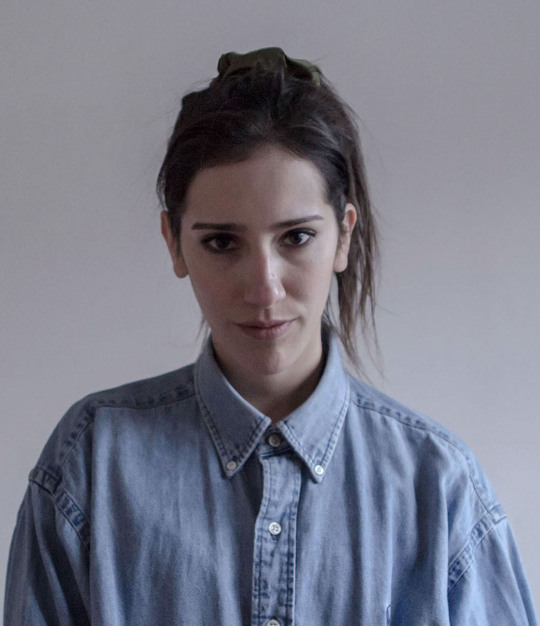
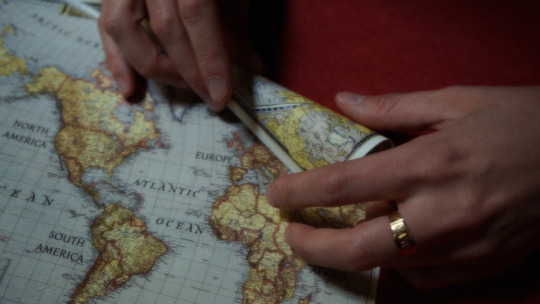
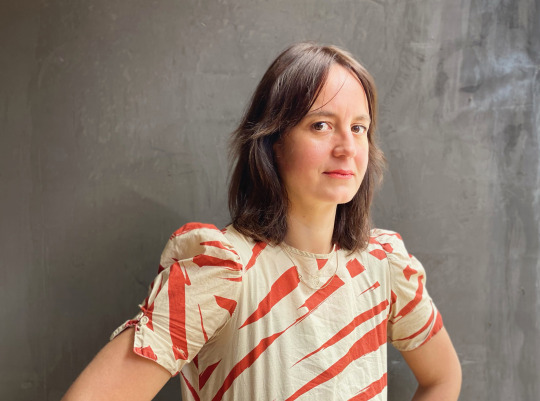
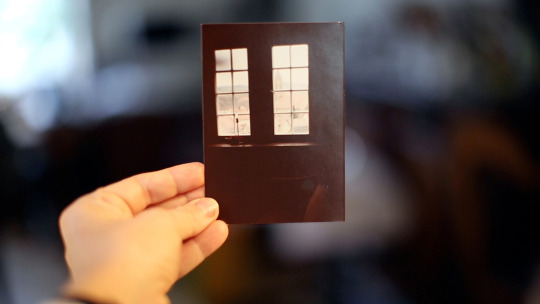
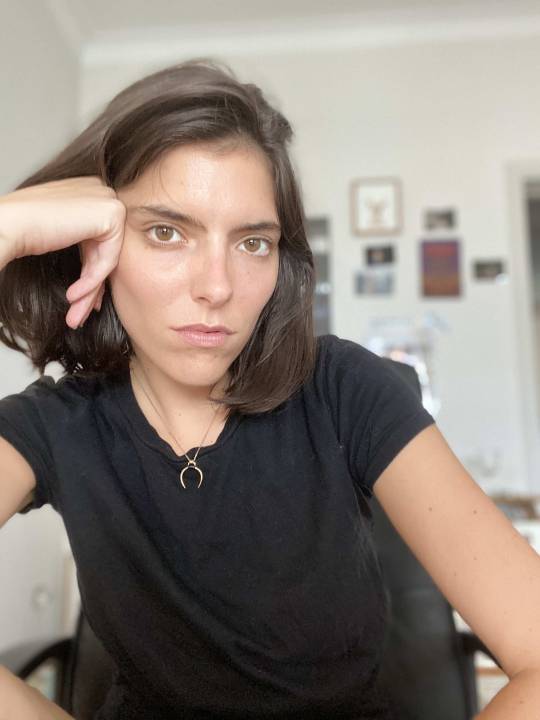
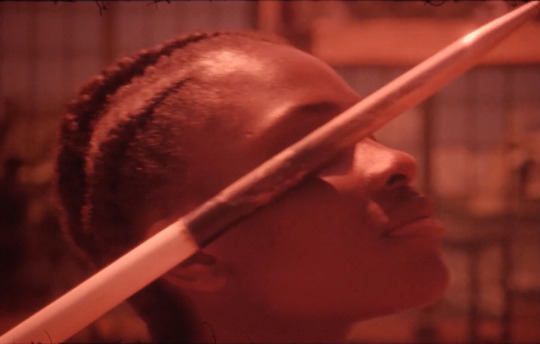
EVA GIOLO + LAURA WEISSENBERGER + VALERIA HOFMANN + RUTH HÖFLICH + JACQUELINE LENTZOU
GESTOS, RECUERDOS, INVOCACIONES
Sesión de cortometrajes en la que los significados de la gestualidad, las cosmologías familiares, la magia, los hechizos y la vida extraterrestre irán tejiendo un recorrido poliédrico por parte del panorama cinematográfico más estimulante del último año.
Flowers blooming in our throats, de Eva Giolo. Italia / Bélgica. 2020. 8.30”. Estreno en Madrid
Íntimo y poético retrato de los frágiles equilibrios que rigen la vida cotidiana en el ámbito doméstico. Giolo filma en 16 mm a un grupo de amigos en sus casas, justo después del confinamiento de la COVID19, realizando pequeñas acciones según sus instrucciones. Acciones que se presentan ambiguas, entre el juego y la violencia, entre el abrazo que reconforta o que te impide escapar, una coexistencia de opuestos que generan cierta inquietud en el espectador, con la idea de reflexionar sobre las violencias domésticas que muchas veces permanecen invisibles.
Eva Giolo, artista visual, sonora y cineasta nacida en Bruselas en 1991. Licenciada en Bellas Artes por la KASK & Conservatorium School of Arts de Gante, posteriormente, estudió en el Instituto de Música Contemporánea de Londres. Es miembro fundador de elephy, una plataforma de producción y distribución de cine y media art con sede en Bruselas. En los últimos años ha desarrollado una carrera cinematográfica con películas como A Tongue Called Mother (2019), The Taste of Tangerines (2020) o Flowers blooming in our throats (2020) con las que ha participado en algunos de los más prestigiosos festivales internacionales de cine, Rotterdam, FidMarseille, Viennale, Cinéma du Réel (París) o Punto de Vista (Pamplona)
Erde essen, de Laura Weissenberger. Austria. 2021. 25’. VOE. Estreno en España
Exploración de la cultura narrativa colombiana y de las historias de las mujeres del país, a partir de los recuerdos y el imaginario de la propia directora, Laura Weissenberger, sobre su país de origen. Durante la película se va tejiendo un cosmos colectivo, protagonizado por una familia ficticia, que representa, metafóricamente, una sociedad en la que se reflexiona sobre migración, el éxito y el fracaso, el presente y el futuro de Colombia.
Laura Weissenberger, nacida en Colombia en 1995, actualmente, vive y trabaja en Viena (Austria), donde en 2019 se graduó en la Academia de Bellas Artes. Ha dirigido tres cortometrajes hasta la fecha: Nightwalk (2015); One minute water (2017) y Erde essen que tuvo su premiere mundial en el Festival de Rotterdam (Países Bajos)
La siesta del carnero, de Valeria Hofmann. Chile / España. 2020. 18’. VOE. Estreno en Madrid
Valeria y Lucía comparten piso en Madrid, una noche mientras echan las cartas del Tarot sacan tres que revelan los dos primeros platos de un menú. Sin salir de casa, las dos amigas viajan desde Embún (España) a Llanquihue (Chile). Éstos son los pueblos de sus abuelas, las únicas que conocen las recetas que han revelado las cartas. A través de bodegones, mapas y videollamadas, estas dos brujas intentan descubrir el significado de la tercera carta mediante un ritual improvisado que conectará ambos continentes de una forma completamente diferente.
Valeria Hofmann, directora y guionista chilena, nacida en Santiago en 1988. En el año 2012 se une al colectivo MAFI con quienes realiza los documentales colaborativos Propaganda (2013) y Dios (2019), ambos estrenados en Visions Du Réel (Suiza). En el año 2018 se traslada a Madrid, para estudiar en la escuela MásterLav, dirigiendo varios cortometrajes, entre ellos La siesta del carnero, que ha sido seleccionado en festivales como FICUNAM (México) FIDBA (Argentina) o el Festival de Málaga. Actualmente está preparando su primer largometraje, Hechiza.
Plant (879 pages, 33 days), de Ruth Höflich. Australia. 2020. 14’. VOSE. Estreno en España
La transcripción de uno de los últimos juicios por brujería ocurridos en la Alemania del Siglo XVIII fue hallada, a principios de los años 80, en la casa familiar de los Höflich, este suceso sirve a la directora para entablar una conversación con su madre en la que con un montaje lleno de capas, que recuerda en cierto modo al cine estructuralista, se reconstruyen hechos históricos, recuerdos de infancia e imágenes cotidianas del lugar.
Ruth Höflich es una artista visual y cineasta alemana, nacida en Munich, que, actualmente, vive y trabaja en Melbourne (Australia). Licenciada en Bellas Artes en Slade School de Londres, posteriormente hizo un máster en Bard College de Nueva York. En su trabajo parte fundamentalmente de la imagen fotográfica como huella diaria de los flujos de información y a partir de ella plantea su presentación en imagen en movimiento. Su último trabajo, In Plant (879 pages, 33 days) fue estrenado internacionalmente en el Festival de Rotterdam (Países Bajos)
The End of Suffering (a proposal), de Jacqueline Lentzou. Grecia. 2020. 14’. VOSE. Estreno en Madrid
Amanece un nuevo día, comienza la rutina de cada mañana, Sofía viaja en transporte público en el preciso momento en el que vuelve a entrar en pánico. Sin embargo esta vez, algo va a ser diferente, el universo decide contactarla. Una cálida voz desde Marte, le habla de un lugar alejado de la Tierra, donde la gente sueña despierta y lucha por el amor. A manera de ensayo de ciencia ficción, la película reflexiona sobre la gestión de la salud mental, la soledad, el estrés y el sufrimiento causados por el sistema capitalista.
Jacqueline Lentzou, cineasta griega nacida en Atenas en 1989. Su lenguaje cinematográfico implica encontrar poesía en premisas aparentemente mundanas creando sensaciones visuales a través de la asociación de palabras e imágenes. Ha dirigido varios cortometrajes, Hiwa (2017) Hector Malot: The Last Day of the Year (2018) o The End of Suffering (a proposal), que han sido seleccionados y premiados en algunos de los más importantes festivales de cine: Cannes, Berlinale, Locarno, Vila do Conde o BFI Londres.
#SMN2021#SMNFestival#SHE MAKES NOISE#cine#artistas#Eva Giolo#Laura Weissenberger#Valeria Hofmann#Ruth Höflich#Jacqueline Lentzou
0 notes
Video
youtube
Seus ossos e seus olhos (2019)
escrito e dirigido por Caetano Gotardo
festivais -
48º International Film Festival Rotterdam
22ª Mostra de Cinema de Tiradentes
16º Indie Lisboa - Festival Internacional de Cinema Independente de Lisboa
27º Filmfest Hamburg
57º Viennale – Vienna International Film Festival
11º Panorama Internacional Coisa de Cinema
27º Festival Mix Brasil
exibições especiais -
Veredas, a generation of Brazilian Filmmakers - Lincoln Center (NY)
Mostra Brasil Contemporâneo - Cinemateca Capitólio (Porto Alegre)
exploração comercial -
Cinema Tropical (modalidade TVOD - EUA e Canadá)
Dekkoo/Amazon (modalidade SVOD - EUA e Reino Unido)
0 notes
Text
VIENNALE 2019: YOKOGAO (A Girl Missing) di Koji Fukada (Giappone/Francia, 2019, 111´)
VIENNALE 2019: YOKOGAO (A Girl Missing) di Koji Fukada (Giappone/Francia, 2019, 111´)
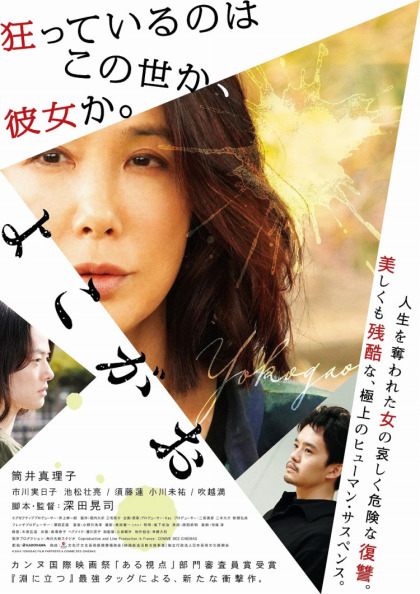
Ichiko lavora come infermiera presso una famiglia, che la stima e l’apprezza al punto di ritenerla un membro in più della stessa. Quando la figlia minore sparisce, i media scoprono che il rapitore è il nipote di Ichiko!
Tutti i film di Fukada pongono l’attenzione sull’apparente stabilità della società giapponese. Quest’ultimo film non è da meno. Come suggerito dal titolo – “Yokogao”, profilo…
View On WordPress
0 notes
Text
Vienna Film Awards 2019
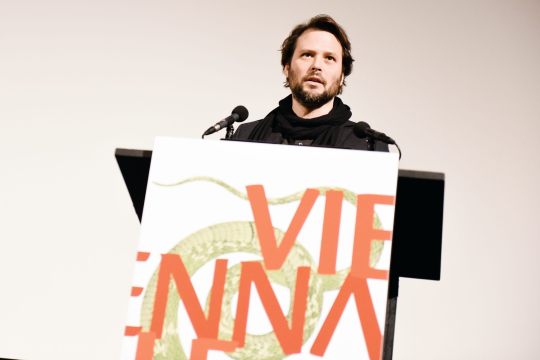
Movements of a Nearby Mountain was awarded the Special Jury Prize of the Vienna Film Awards 2019 at the closing ceremony of the Viennale. The jury Alexander Charim, theatre director, Herwig Kempinger, president of the Secession and Helga Rössler, head of the computer studio of the University of Applied Arts Vienna states: “A calm, poetic, touching film that raises more questions than it answers, that doesn't know beforehand what it will find.“
0 notes
Photo
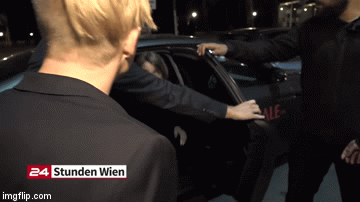
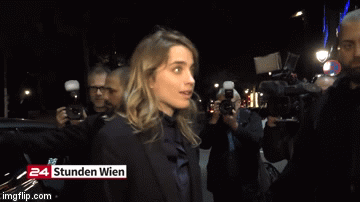
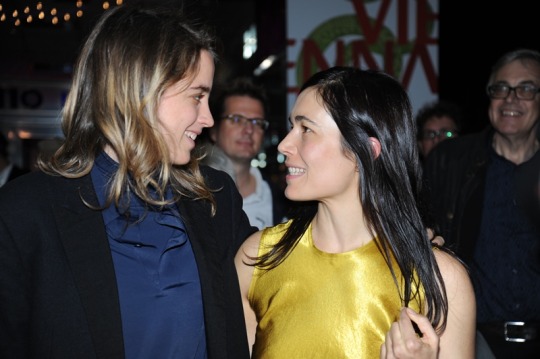
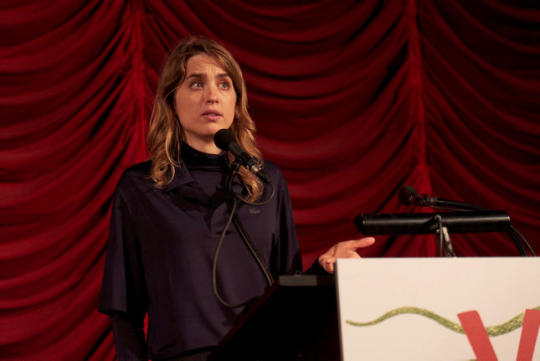
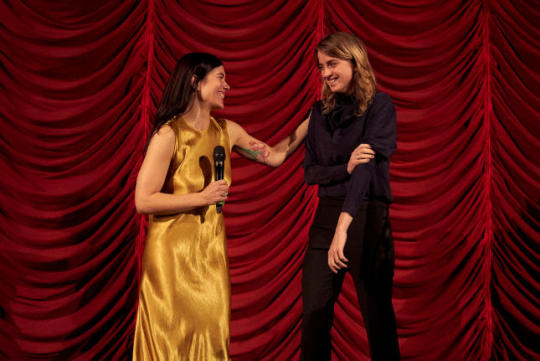
Viennale 2019 (festival director Eva Sangiorgi)
(photo by: Katharina Sartena, Robert Newalds)
43 notes
·
View notes
Video
youtube
viennale 2019 #3: “the climb” by michael angelo covino. cinematographically well made movie about male-friendship.
1 note
·
View note
Link
Translated interview
A new politics of love - An interview with Adèle Haenel on 'Portrait of a Lady on Fire'
By Barbara Fohringer, in: The Gap, 28th of October 2019
Additions or clarifications for translating purposes are denoted as [T: …]
The film 'Portrait of a Lady on Fire' not only shows a same-sex love but also an equal one between two women in the 18th century. The Gap met with Adèle Haenel, one of the two leading actresses, for a conversation.
Marianne (Noémie Merlant), a painter in the 18th century, is commisioned to do a portrait of the aristocratic Héloïse (Adèle Haenel) - without her knowledge -, as Héloïse already refused to sit for another painter. Héloïse, whose sister has recently died, is promised to a nobleman in Milan, her portrait is meant to illustrate her future marriage. In Céline Sciamma's ('Water Lilies', 'Tomboy', 'Girlhood') new film, it is two women who fall in love with each other, two women who are equals.
'Portrait of a Lady on Fire' received the Best Screenplay award and 'Queer Palm' at the Cannes Film Festival this year. The film opened the Viennale a couple of days ago. Adèle Haenel ('Water Lilies', 'The Bloom of Yesterday', '120 BPM') came to Vienna for this event - and answered some of our questions.
Interviewer: Why did you choose this role? Why did it appeal to you?
Adèle Haenel: I've known Céline Sciamma, the director, for a long time. We met twelve years ago and did our first film together, and I think, she is currently one of the most talented directors in France. [T: 🥰] I then read the screenplay, and thought it is a wonderful love story. When I finished reading it, I cried.
I: How did you approach the role? How did prepare for it? It is after all a period film, which takes place at the end of the 18th century.
AH: I never think like that. The fact that it is a period film doesn't influence the way I'm acting. It would be the wrong approach, to think about acting in that way. It doesn't matter in which period the story takes place, but it's about the problem that this film deals with. You cannot say: This is the way to prepare for a period drama. I was interested in the key question of the film and that it's centred around queer people. We wanted to tell a new love story, because it's about the love between two people that are equals. It's two women of roughly the same age. They are of similar height and intelligence. None of them dominates the other. This was our foundation. We asked ourselves, how this collaboration - in love - could work and how we could show love without possession. It's about a new politics of love. It was important for us to show a certain sexiness in equality, consent and non-possession. This opened up new concepts, as we are not yet used to these kinds of stories. We are used to think of submission as sexy - but not of equality. That was the main thing. When I took on the role, I considered it as a journey from object to subject. That is the character's journey.
I: The film not only shows the equality of the characters in terms of its content, but also visually, it virtually creates a female gaze, a new perspective on female characters. How was the shooting, and how did you, the director and you, approach the characters?
AH: Yes, that was the plan. It really is a Post-#MeToo-film. I don't think it would have been possible to make the film beforehand, because there was little understanding about the concept of alienation between women or rather solidarity between women. We talk more with each other now, there are more alliances between women. You can see this with the character of Sophie the maid. She is a maid, but she is also much more than that and has her own story, independent of the two main characters. The film consists of many long shots, and has its own rhythm. I think, the framing also demonstrates the relationship between the characters. Sometimes we as actors didn't have much room to move, sometimes we had more.
I: The aspect of class was also interesting for me, as just discussed for the character of Sophie, and also the fact, that it's about art and how you create this image of another person. How did you approach this theme?
AH: Art is part of the love story in this film, although you could also say the opposite. The film is also about working on a piece of art. The character of Marianne asks herself what qualifies as a good portrait - does it have to contain the soul of a person or is it rather about capturing a moment in time. Marianne didn't ask herself these questions before that, she followed the rules in her way, so when she meets Héloïse she is forced to question herself and to become aware of her choices. Of course, I don't have anything to do with the pictures, but Noémie Merlant took some lessons with Hélène Delmaire, who made all the pictures that you can see in the film.
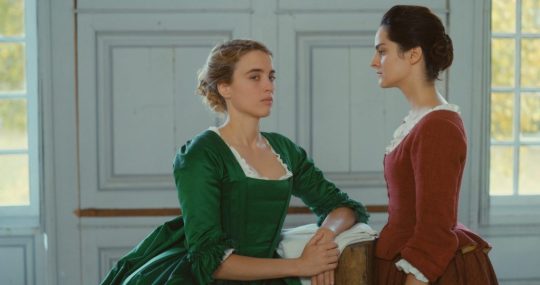
I: What other female roles are you interested in?
AH: I'm more interested in the dynamics of a film. So every character intrigues me and there is no topic that doesn't appeal to me. The dynamics and the point of view are close to my heart. Sure, you can also say that fight scenes or riding a motorcycle or whatever are interesting, but that's not really the point.
I: What did you learn about yourself and the business since you became an actress?
AH: I don't know about that, but I do know: If a do a film, then I have philosophical and political questions that I'm asking myself at the time. Every film that I made since 2012 tried to answer one of those questions. It's not necessarily about me. But rather pursuing an idea. Younger actresses and actors, who want to learn the trade, need to listen to what brings them joy. [T: Mari Kondo vibes, she actually says inner joy] The feeling for acting you can, you have to feel. It's not just in your head, but also in your heart. Many have that and they must not let go of it. Don't follow the rules and stay true to yourself. But you also have to be careful, there can be problematic situations.
I: Right now, it's the Viennale in Vienna. Do you have a connection with Austrian films?
AH: My father is from Austria, that's why I have a special connection with this country, but I'm not that familiar with the Austrian cinema. But I'm interested in working in German. I would like to do more films or theatre plays in German.
I: Your German is quite good already, especially, when you consider that you learned the language quite late.
AH: I learned German when shooting 'The Bloom of Yesterday'. But when I'm tired, everything is kaputt (laughs) [T: broken]. I'd rather speak in English then. However, I did the Q&A in German in the cinema yesterday.
I: Can you already tell us something about your new projects?
AH: I'm currently working at the theatre. We just started with the rehearsals and will perform next year. [T: 🙏🏿] The play is called 'The Pond' by Robert Walser [T: which is directed by Gisèle Vienne and also stars Ruth Vega Fernandez, see here]. We originally wanted to do this play in German, but we will do it in French now - I think. If we do perform this play internationally, then we might switch to German. Either way, I know the text in French and German. 'The Trouble with You' by Pierre Salvadori will be released in Austria soon. (Editor's note: [...] from 8th of November 2019.)
I: Many French films are quite successful internationally but also in Austria. What do you think is the reason for this success?
AH: France has an exceptional financing system for films. Every film that is successful in cinema gets funding afterwards, which can then be invested in new film projects. We produce a lot of films, even though we are not such a big country. The French film has a very good reputation. I believe, this benefits arthouse films as well as commercial ones.
I: What profession would you have taken, if you hadn't become an actress?
AH: I think, I would give acting classes then.

#Adèle Haenel#Austrian interview#The Gap#2019#PoaLoF#Portrait of a Lady on Fire#Portrait de la jeune fille en feu#I love what she says about Céline#Find a woman who can do both#Ride a (tiny) motorcycle#And look smashing in costume#BUT where is the Q&A from the Viennale?!#My translation#long post
73 notes
·
View notes
Photo
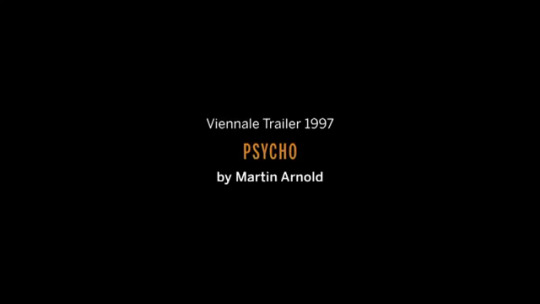
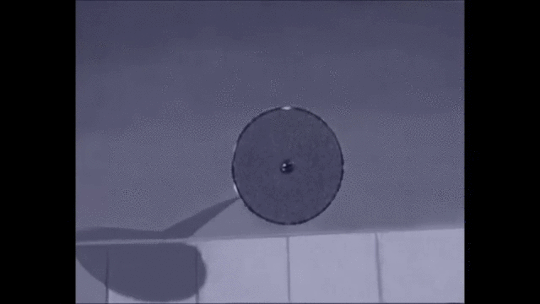
Martin Arnold, {1997} Psycho
#film#gif#filmgifs#martin arnold#psycho#viennale trailer#1997#short film#experimental film#no people#circles#shower#austria#male filmmakers#film diary 2019#films#.gif
9 notes
·
View notes
Photo
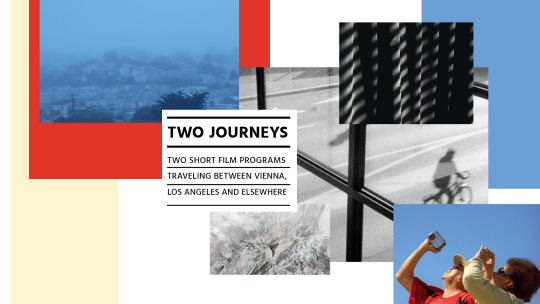
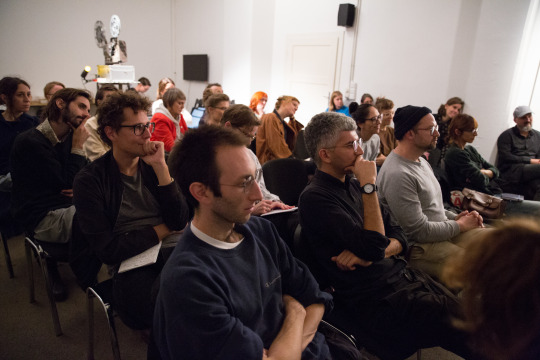
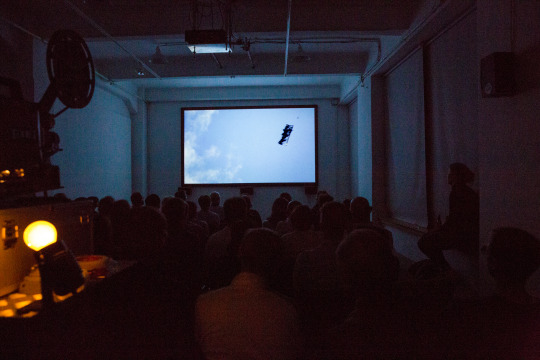
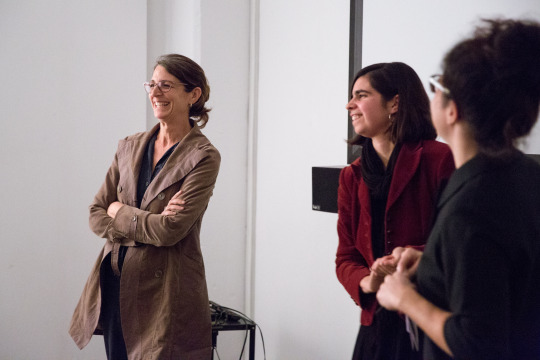
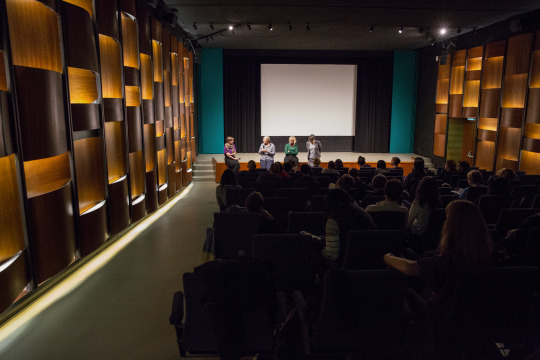
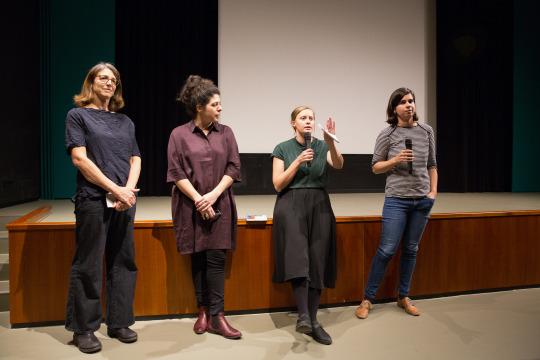
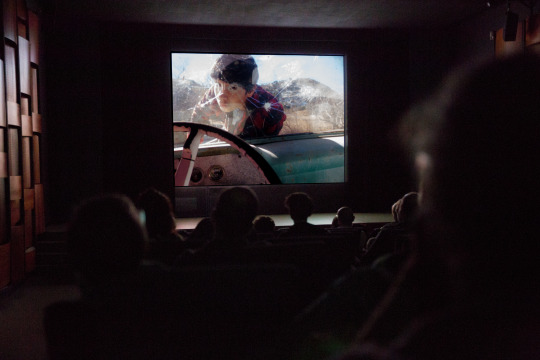
TWO JOURNEYS
TWO SHORT FILM PROGRAMS TRAVELING BETWEEN VIENNA, LOS ANGELES AND ELSEWHERE
EVENTS IN VIENNA
17.10.2019 - 18.10.2019
Two Journeys is a project by The Golden Pixel Cooperative, conceived by Viktoria Schmid and Lisa Truttmann, in collaboration with Los Angeles-based filmmakers Rebecca Baron and Nora Sweeney.Through this collective exchange, two short film programs were compiled, consisting of films that relate broadly to the two places of their creation, Vienna and Los Angeles. Austria and the United States are just starting points – we travel to a library in Buenos Aires, a ranch in rural Mexico, the sky in Switzerland, a pool in Tehran and through intangible spaces and surfaces. The films, including documentary, experimental, and narrative work, range in form, and some defy categories. The works of pioneers such as Chick Strand, Charles Burnett and Friedl vom Gröller are in dialogue with those of filmmakers from the next generation. Taking the title from Vienna to Los Angeles: Two Journeys, Esther McCoy’s collection of letters between architects residing in Los Angeles and Vienna, the Two Journeys project aims to create a cross cultural conversation through cinema.
With films by Charles Burnett, Joie Estrella Horwitz, Victoria Fu, Juan Pablo González, Friedl vom Gröller, Luis Gutiérrez Arias, Adele Horne, Rosa John, Karl-Heinz Klopf, Nathalie Koger,Laura Kraning, Claudia Larcher, Brigid McCaffrey, Dorit Margreiter, Simona Obholzer, Sasha Pirker, Marlies Pöschl, Raphael Reichl, David de Rozas, Lotte Schreiber, Chick Strand, Katharina Swoboda, John Henry Theisen and Antoinette Zwirchmayr.
EVENTS IN VIENNA
TWO JOURNEYS – Part 1
Short film program (94 min) followed by a Q&A
October 17, 2019, 7 pm
Medienwerkstatt Wien
Neubaugasse 40A, 1070 Vienna
With films by Victoria Fu, Luis Gutiérrez Arias & John Henry Theisen,Adele Horne, Karl-Heinz Klopf, Laura Kraning,Claudia Larcher, Simona Obholzer, Raphael Reichl, Chick Strand, Katharina Swoboda, und Antoinette Zwirchmayr.
TWO JOURNEYS – Part 2
Short film program (106 min) followed by a Q&A
October 18, 2019, 6:30 pm
Belvedere 21, Blickle Kino,
Arsenalstraße 1, 1030 Vienna
With films by Charles Burnett, Joie Estrella Horwitz, Juan Pablo González, Friedl vom Gröller, Rosa John, Nathalie Koger,Dorit Margreiter, Brigid McCaffrey, Sasha Pirker & Lotte Schreiber, Marlies Pöschl und David de Rozas.
FRAMEWORK PROGRAM VIENNA
Screening and talk:
Films by Nora Sweeney and Rebecca Baron
Presented by the filmmakers
October 17, 2019, 5:00 pm
Medienwerkstatt Wien
Neubaugasse 40A, 1070 Vienna
Birds of a Feather
Nora Sweeney, 19 min, 2019
Elderly Armenian men convene daily at a park in Glendale, California to play cards, backgammon, and dominoes. Laughing, singing, arguing - they transform the public space into a portal to their home countries and pass the time together as they age.
Detour de Force
Rebecca Baron, 30 min, 2015
A fascinating portrait of "thoughtographer" Ted Serios, a hard-drinking Chicago bellhop who caused a sensation in the sixties with his psychic ability to produce hundreds of Polaroid images from his mind.
Nora Sweeney is a documentary filmmaker, photographer, and professor based in Los Angeles whose work focuses on cultural traditions, labor, and immigrant communities in the United States. Born and raised in Cincinnati, Ohio, she received her B.A. from Oberlin College and M.F.A. in Film/Video from CalArts. She currently teaches film at CalArts, Long Beach City College, and Pierce College. Her films have been screened at REDCAT (Los Angeles), Antimatter (Victoria), Chicago Underground Film Festival, Milwaukee Underground Film Festival, Athens International Film + Video Festival, and in the Black Maria Film and Video Festival, where Something Like Whales won a Jury's Choice Award (1st Prize).
Rebecca Baron is a Los Angeles-based filmmaker, curator and director of the Program in Film and Video at CalArts. Best known for her lyrical essay films, she has most recently been investigating the role of AI, machine learning and database design in relation to cinematic expression. Her award-winning films have screened widely at international film festivals and media venues including Documenta 12, New York Film Festival, Rotterdam, British Film Institute, Centre Pompidou,Toronto Film Festival, London Film Festival, Viennale, and the Whitney Museum of American Art.
#TWO JORUNEYS PROGRAM FOLDER
Filmprogramm
TWO JOURNEYS – PART 1
It’s Going To Be Beautiful
Luis Gutiérrez Arias, John Henry Theisen, 9 min, 2018
Testa
Karl-Heinz Klopf, 18 min, 2018
Untitled (Flying trees)
Katharina Swoboda, 3 min, 2013
Quiero Ver
Adele Horne, 6 min, 2008
-5°C 40% rF
Simona Obholzer, 7 min, 2016–17
Devil’s Gate
Laura Kraning, 20 min, 2011
Noise above our heads
Claudia Larcher, 4 min, 2016
ttttouch me
Raphael Reichl, 3 min, 2017
Télévoix 1
Victoria Fu, 7 min, 2017
In its form asleep
Antoinette Zwirchmayr, 4 min, 2016
Artificial Paradise
Chick Strand, 13 min, 1986
––––––––––––––––––––––––––––––––––––––––––––––
Filmprogramm
TWO JOURNEYS – PART 2
Transfer (Monument Valley)
Dorit Margreiter, 3 min, 2016
Alejandro & Miguel
Joie Estrella Horwitz, 9 min, 2019
Erwin, Toni, Ilse
Friedl vom Gröller, 9 min, 1968–69
Exil
Rosa John, 3 min, 2011/16
Bad mama, who cares
Brigid McCaffrey, 12 min, 2016
Pause
Give
David de Rozas, 16 min, 2018
Exhibition Talks
Lotte Schreiber, Sasha Pirker, 9 min, 2014
What is exhibited
Nathalie Koger, 6 min, 2008–12
The Pool
Marlies Pöschl, 5 min, 2014
Las Nubes
Juan Pablo González, 20 min, 2017
When It Rains
Charles Burnett, 13 min, 1995
Supported by
Austrian-American Partnership Fund, U.S. Embassy Vienna and Bildrecht
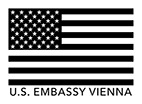

Credits
© Adele Horn, Quiero ver, film still.
© Antoinette Zwirchmayr, In its form asleep, film still.
© Lotte Schreiber & Sasha Pirker, Exhibition talks, film still.
© Claudia Larcher, Noise above our heads, film still.
© Katharina Swoboda, Untitled (Flying trees), film still.
© Brigid McCaffrey, Bad mama, who cares, film still.
© David de Rozas, Give, film still.
Event documentation: Claudia Sandoval Romero
0 notes